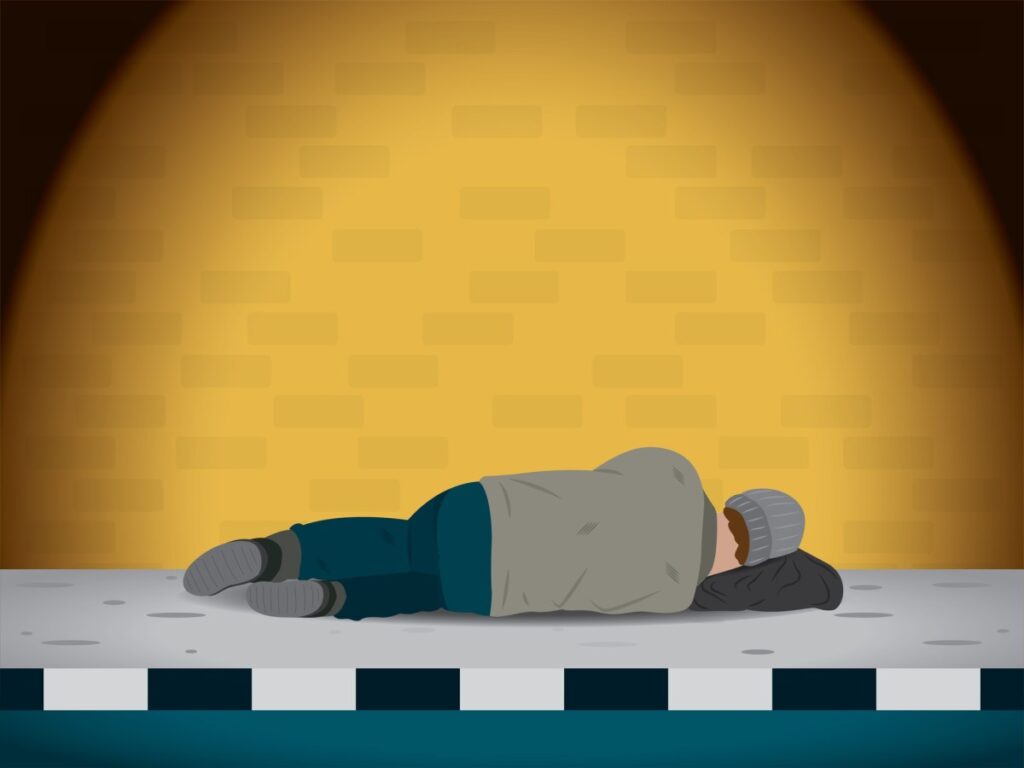Original Article at CalMatters.org

IN SUMMARY
We need a legal standard covering a city’s ability to manage homeless encampments. Such a standard would keep cities from pushing their unhoused across city lines and force them to work together.

By Kevin James, Special to CalMatters
Kevin James is an attorney, the former president of the Los Angeles Board of Public Works and a candidate for city attorney, heykevinjames@aol.com.
If we are going to solve homelessness in California, every city must be part of the solution.
Homelessness happens everywhere, and unhoused people should be able to remain in their communities. We need every city involved in building housing, shelters, mental health services, addiction services and job placement services. Not just the larger cities.
That’s why Assemblymember David Chiu (D-San Francisco) introduced Assembly Bill 816, which would require “every [city] to pull their own weight.” As introduced, each city was to submit proposals by 2023 on how to reduce homelessness by 90% by 2030. Objections arose, however, over pursuing legal action against local governments “should they fail to follow through on their commitments,” adding months or years to the timeline.
Thus, the bill was amended, but not to eliminate the nine-year timeline to act, which is what should have happened. Instead, the language requiring every city to pull its own weight is gone — and with it a golden opportunity for the Legislature to bring every city to the table to solve homelessness.
Local homeless policies will continue to be driven by the number of encampments residents see in their neighborhoods, and by legal settlements resulting in uneven and inconsistent enforcement of quality-of-life ordinances in the public right of way.
The more realistic road to homelessness solutions will be through the courts. And as the U.S. Court of Appeals for the 9th Circuit demonstrated in Martin vs. City of Boise, it might take only one more court case to do it.
The Boise case ruled that a city cannot prohibit an unhoused person from sleeping on the sidewalk without offering reasonable shelter to that person.
But Boise only dealt with one element of the crisis — sleeping on the sidewalk. Boise expressly avoided encampments blocking the public right of way.
What Boise did on the issue of unhoused people sleeping on the sidewalk, Los Angeles should do on the issue of encampments obstructing public space. We need a Boise-like decision by a federal or state court that creates a legal standard covering a city’s ability to manage its public right of way.
Legal settlements are keeping us from getting that legal standard and a path to finding solutions for homelessness.
Every time Los Angeles or San Diego settles a homelessness/public right of way case, it avoids a court ruling on encampments that could force every city in Los Angeles County, or perhaps every city in the nine Western states, into the process of solving homelessness.
A new legal standard on encampments from a Boise-like court decision would establish uniformity and consistency on this issue so a city will not have a reason to push an unhoused person to a neighboring city.
When an unhoused person is moved from one city to another, so is the incentive to help them. Moving unhoused people from city to city, unfortunately, is the solution many cities use to deal with unsightly encampments on their own sidewalks.
With a new legal standard, the neighboring city would have the authority to manage its public right of way the same way the unhoused person’s city of origin does. Furthermore, an unhoused person will no longer have an incentive to move to a neighboring city, because the rules on encampments in both cities will be the same.
If one city is caught pushing its unhoused population to another city, that misconduct could expose the offending city to legal liabilities. And those legal liabilities are what will force California cities to the table to solve homelessness.
So when it comes to homelessness and public right of way lawsuits, residents of cities across California should tell their leaders: Stop the legal settlements. Seek a decision from the courts and set California cities on the road to solving homelessness — together.